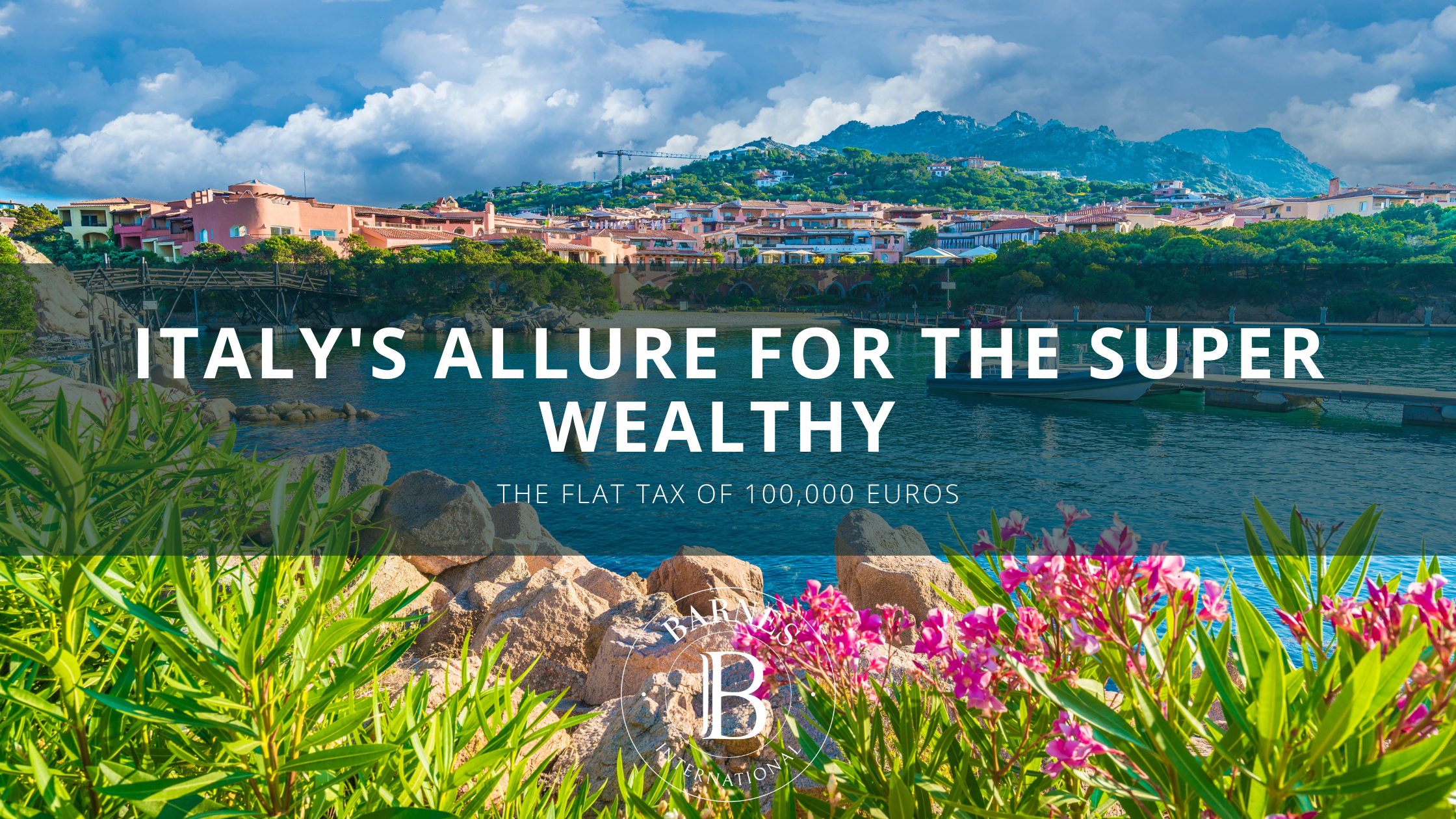Italy’s allure for the Super Wealthy: The flat tax of 100,000 Euros

Italy’s Attractive Tax Regime for the Super-Rich
Since 2017, Italy has been a hotspot for the ultra-wealthy, thanks to the introduction of a lump-sum tax of 100,000 euros, often referred to as the “Flat Tax.” This tax law, distinct from the one being discussed in the government, has lured nearly a thousand wealthy foreigners to relocate to Italy in 2021, along with about 300 family members. This number has doubled compared to the previous year. In its first year of implementation, there were 99 new resident taxpayers. In 2021, these individuals contributed 108 million euros to the state, excluding other taxes and the economic boost from their purchases and consumption.
Understanding the Mechanics
This option, particularly beneficial for incomes over 300,000 euros, was introduced in the 2016 budget law under the Renzi government. The goal was to attract wealthy individuals to boost the national economy through real estate purchases and high spending. The law allows new residents (including Italians who lived abroad for at least 9 of the past 10 years) to opt for an annual fixed tax of 100,000 euros, replacing the personal income tax on foreign income without constraints on work activity and income. Each family member can pay 25,000 euros, and it includes exemption from donation and succession tax on foreign assets and fiscal monitoring. The regime lasts for a maximum of 15 years and can be revoked at any time without additional costs.
Indirect Revenue and Economic Impact
Estimating indirect revenue is challenging, but it’s significant. In 2020, the Italian-source income of these wealthy new residents, fully taxed in Italy, amounted to about 100 million euros. This is in addition to the aforementioned taxes on foreign income. The economic stimulus in terms of consumption, investments in movable and immovable property, and the establishment of Italian branches of companies, funds, and multinational groups adds to this. Many of these new residents, especially those without European citizenship, also opt for an investor visa, requiring significant investment in Italian public debt or companies.
The Rich Foreigners in Italy
The Flat Tax has attracted models, actors, influencers, footballers like Cristiano Ronaldo, and bankers, predominantly from the UK, South America, the USA, and pre-conflict Russia. After 100 in the first year, new residences rose to 263 in 2018, 429 in 2019, dropped slightly in 2020 due to the pandemic, and then doubled in 2021 to 1,339 beneficiaries.
Analysis for Real Estate Agencies
For real estate agencies, this trend signifies a golden opportunity. The influx of wealthy individuals seeking Italian residency under the Flat Tax law has heightened demand for luxury properties. The presence of these high-net-worth individuals is not only a boost for the high-end real estate market but also for local economies, as their spending habits often include substantial investments in property and luxury goods.
A New Era for Italian Real Estate: Capitalizing on the Wealthy Migrant Wave
While the tax regime has raised some concerns about fairness compared to long-term Italian residents, its ability to attract affluent foreigners is undeniable. This trend presents a unique opportunity for real estate agencies in Italy, highlighting the attractiveness of Italy’s property market to a global elite. As these individuals settle in Italy, the demand for high-end real estate is expected to continue to grow, offering a lucrative avenue for agencies specializing in luxury properties.
Interested in exploring the topic? Join our free webinar on December 22nd at 5 PM. Register here.


 It
It  Fr
Fr 

